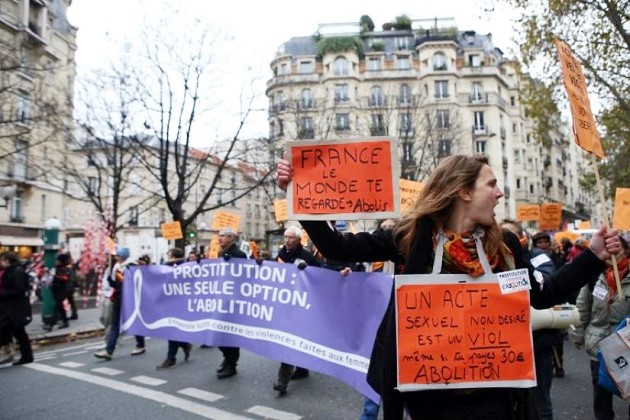“There are around 33,000 prostituted women in France, and 80% are victims of trafficking”, says Marcel Georgel. He works algonside victims of human trafficking in Nantes (France).
 Supporters of penalisation of 'prostitution clients', demonstrate in favour of the new law in France. / AFP
Supporters of penalisation of 'prostitution clients', demonstrate in favour of the new law in France. / AFP
How should we evaluate the French law that makes it illegal to pay for sex? Marcel Georgel works alongside victims of human trafficking in Nantes (France), leading an OM Espoir team.
“After 6 years, Christians from different churches started the same kind of work in 12 other cities”, Georgel told Evangelical Focus. “The freedom network has been created as a link between these cities.”
A LAW CHRISTIANS SHOULD SUPPORT
The law adopted in the French Parliament can bring change because it fights against “the ‘client': it condemns to pay 1,500 euros if the ‘client’ is caught with a prostituted woman, and 3,000 euros if it's the second time”, Georgel explains.
“There will also be help provided for the girls who decide to quit prostitution, like papers for 6 months to study their cases, a safe home, French language courses and a job training.”
These characteristics puts the bill in a clear abolitionist direction, a set of measures Georgel defines as “inspired in the Swedish model.”
THE CHALLENGE OF TRAFFICKING IN FRANCE
 Marcel Georgel.
Marcel Georgel.Of course, some groups wanting to legalise prostitution have protested against the law, but Georgel thinks it should be seen as “positive” news for all those working in favour of “equality between men and women and the end of human trafficking.”
The situation in the country is still dramatic. “There are around 33,000 prostituted women in France, and 80% are victims of trafficking”, Georgel says.
“As a Christian I support this new law because, until now, it was the prostituted woman who was condemned, not the ‘client.’ The effort to help these women to quit prostitution is a good thing. In God's eyes, to use a women as a sex object is not acceptable.”

Las opiniones vertidas por nuestros colaboradores se realizan a nivel personal, pudiendo coincidir o no con la postura de la dirección de Protestante Digital.
Si quieres comentar o